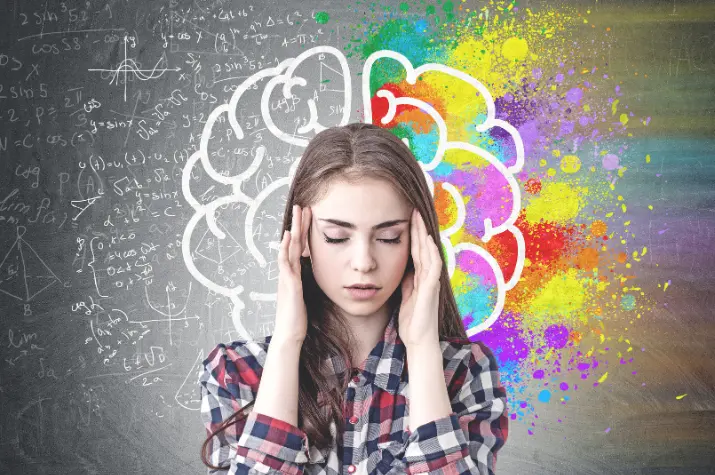
A person’s brain function is only one of the many areas of their life that can be significantly impacted by the complicated mental health illness known as depression.
It is crucial to comprehend the brain’s effects of depression to appreciate the significance of early detection and successful treatment approaches.
5 Ways Depression Affects Your Brain
This post will look at five ways that depression impacts the brain’s ability to function.
Alterations in Brain Chemistry:
Changes in brain chemistry are one of the main ways depression impacts the brain. Serotonin, dopamine, and norepinephrine are a few examples of neurotransmitters that are essential for mood, motivation, and pleasure regulation.
These levels of neurotransmitters may be out of equilibrium in depressed people, resulting in symptoms including fatigue, loss of interest, and chronic unhappiness.
Neurotransmitter dysregulation can impede brain cell-to-cell communication and play a role in the onset and persistence of depression symptoms. Determining the cause of these chemical abnormalities is essential to creating depression therapies that work.
Changes in Brain Structure:

Additionally, depression has been linked to structural alterations in the brain, notably in areas related to stress response and emotional control. Prolonged stress may decrease brain regions like the prefrontal cortex and hippocampus and alter neural networks, which is why depression is frequently brought on by it.
These structural alterations may worsen memory, decision-making, and cognitive function, aggravating depressive symptoms and compromising brain health in general. By recognizing these structural changes, clinicians can better figure out the neurological reasons for depression and adjust treatment strategies.
If you’re struggling with depression, remember that help is available. Don’t hesitate to reach out to a Depression Hotline or seek support from a mental health professional.
Impaired Neuroplasticity:
The brain’s capacity to change and rearrange in response to events and external stimuli is known as neuroplasticity. Neuroplasticity may be compromised in depressed individuals, making it more difficult for their minds to adjust to novel circumstances or heal from stressful events.
Decreased neuroplasticity can impair the brain’s capacity to properly regulate mood and emotions as well as prevent new neural connections from forming. Restoring optimum brain function and aiding in the recovery from depression requires addressing poor neuroplasticity.
Cognitive behavioral counseling and mindfulness-based practices are examples of therapeutic therapies that target neuroplasticity and may assist in increasing resilience and mood regulation in depressed persons.
Disrupted Sleep Patterns:

Sleep problems may be damaging to the health of the brain and are frequent in persons who suffer from depression. An inability to sleep, either from insomnia or hypersomnia, can impair the brain’s capacity to process information, organize memories, and control emotions properly.
Prolonged sleep deprivation exacerbates symptoms of depression by causing mood swings, cognitive impairments, and heightened stress sensitivity. Treatment for depression and maintaining brain health both depend on enhancing sleep quality and treating underlying sleep problems.
Interventions centered around sleep, including cognitive-behavioral treatment for insomnia, have the potential to assist depressed people in regaining healthy sleep habits and mitigating related symptoms.
If you’re experiencing sleep disturbances alongside depression, seeking support from a mental health professional or contacting a Depression Hotline can provide guidance and resources to help improve your sleep patterns.
Increased Inflammation and Oxidative Stress:
There is mounting evidence linking depression to elevated levels of oxidative stress and inflammation in the brain. The pathophysiology of depression is influenced by prolonged inflammation and oxidative stress, which can harm neurons, interfere with neurotransmitter function, and impede synaptic plasticity.
Reducing inflammation and oxidative stress with good eating, regular exercise, and stress-reduction methods can help prevent additional brain damage and lessen the symptoms of depression. Anti-inflammatory tactics, when combined with conventional therapies, can be used in depression therapy regimens to improve patient results and promote general mental health.
If you’re struggling with depression, it’s essential to address all aspects of your health, including inflammation and oxidative stress. Seeking guidance from a mental health professional or reaching out to a Depression Hotline can provide you with the support and resources you need to manage your symptoms and improve your overall well-being.
Conclusion
Neurotransmitter function, brain architecture, neuroplasticity, sleep habits, and neuroinflammatory mechanisms are all impacted by depression. Comprehending these neurological pathways is crucial to creating focused treatments and depression treatment plans.
People can boost general brain function and improve their mental health outcomes by treating the underlying brain abnormalities linked to depression. A thorough treatment plan, lifestyle changes, and early intervention are essential for reducing the damaging effects of depression on brain function and fostering recovery.
About The Author:
Stacey Smith is a freelance health writer. She is passionate about writing about women’s health, dental health, diabetes, endocrinology, and nutrition and provides in-depth features on the latest in health news for medical clinics and health magazines.



![[Infographic] Dispelling Misconceptions Surrounding Depression Dispelling Misconceptions Surrounding Depression](https://www.safeandhealthylife.com/wp-content/uploads/2024/01/Misconceptions-Surrounding-Depression-150x150.webp)
